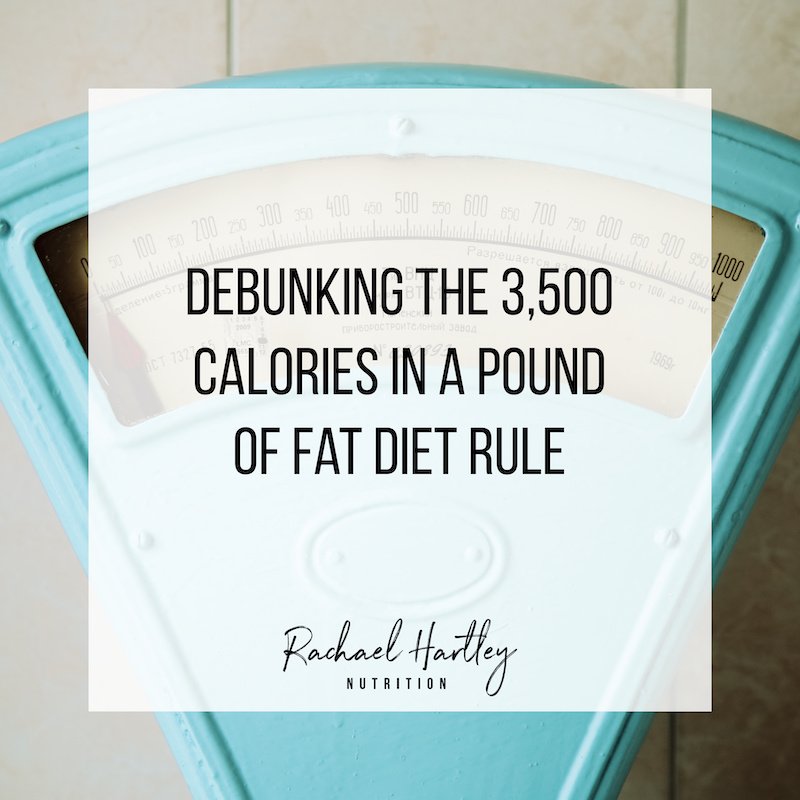
CW: Dialogue of energy, body weight and quantities, which probably could be gleaned from the title of the short article, but just in circumstance 😉
We’ve all heard the “simple” rule to shed a pound a 7 days. A pound of body fat supposedly suppliers 3,500 calories, so if you want to shed a pound a 7 days, just eat 500 energy a lot less a working day, work out them off, or do a little of equally. It’s as simple as that!
Besides it’s not.
I’m humiliated to say that early on in my dietetics occupation, prior to I practiced from a non-food plan lens, this was a piece of suggestions I gave out on the standard. The 3,500 calorie rule was simple and simple to comprehend – fantastic for these quick eating plan educations all us RDs have to do when we perform inpatient medical work opportunities.
It is really horrifying to me now all the misinformation I was taught when in school to become a dietitian, and I went through some rather stable nourishment packages! As is the circumstance with the 3500 calories in a pound of unwanted fat rule, in some cases misinformation is taught for the reason that it is basic and shopper helpful, and due to the fact they don’t see a downside to it. Mainly because reducing energy when someone wishes to shed fat is generally nutritious, ideal? If we can train folks an uncomplicated way to do that, no harm, no foul.
Other than that it does induce harm. Very a bit in fact.
Spreading a falsehood that will make fat reduction out to be some basic mathematical equation fuels the diet program cycle and yo-yo dieting. When folks don’t shed the magical pound a 7 days, they feel like a failure, setting off a cascade of a lot more and a lot more restrictive diets, or a shame and hopelessness fueled having backlash. It also helps make people today minimize out a very significant, and in some cases even perilous sum of calories, mainly because even though yes, there are persons out there who could lower their average caloric consumption by 500 calories every day and nonetheless be having an proper quantity of food stuff, there is A Great deal of men and women for whom that sort of reduction could set them into ingesting condition territory.
The 3,500 calorie rule also does something I talk a good deal about with my purchasers, where it usually takes a kernel of reality but waters it down or sensationalizes it so it is no lengthier valuable or correct. Diet program society just loves spreading these extremely simplified guidelines!
Though the 3500 energy in a pound of unwanted fat rule is simple, the truth of human biology is substantially a lot more intricate, and I’d argue considerably extra intriguing!
The place does the 3,500 calories in a pound of fats myth arrive from?
Back again in 1958, a health practitioner and researcher named Max Wishnofsky posted a report titled “What is the caloric equal of one pound of human body excess weight attained or lost.” In it, he concluded that 1 lb of excess fat contained close to 3,500 energy. Because then, his report has been cited thousands of times in some of the most influential professional medical journals.
It’s a little little bit challenging to know exactly what his procedures were being, as only the initially web page is accessible for cost-free online, but it seems he essentially converted the excess weight of a pound of adipose tissue (aka fat) to grams, corrected for the quantity of that adipose tissue that is fluid, proteins, and other non-extra fat substance. Since we know that 1 gram of animal unwanted fat contains about 9 energy, it is an simple multiplication to arrive at 3,500 energy in a pound a extra fat.
Though a pound of adipose tissue does incorporate in the range of 3,500 energy, the dilemma with this point is how diet regime society applies it. By overly simplifying human biology, it produces a rule that claims every person if you can just do the “right” factor and minimize 500 energy a day, you can effectively pick what pounds you wan to be.





More Stories
Clover Health Stock Is No Longer a Meme Stock
Topical acne treatments: what’s new?
the link between skin health and mental health